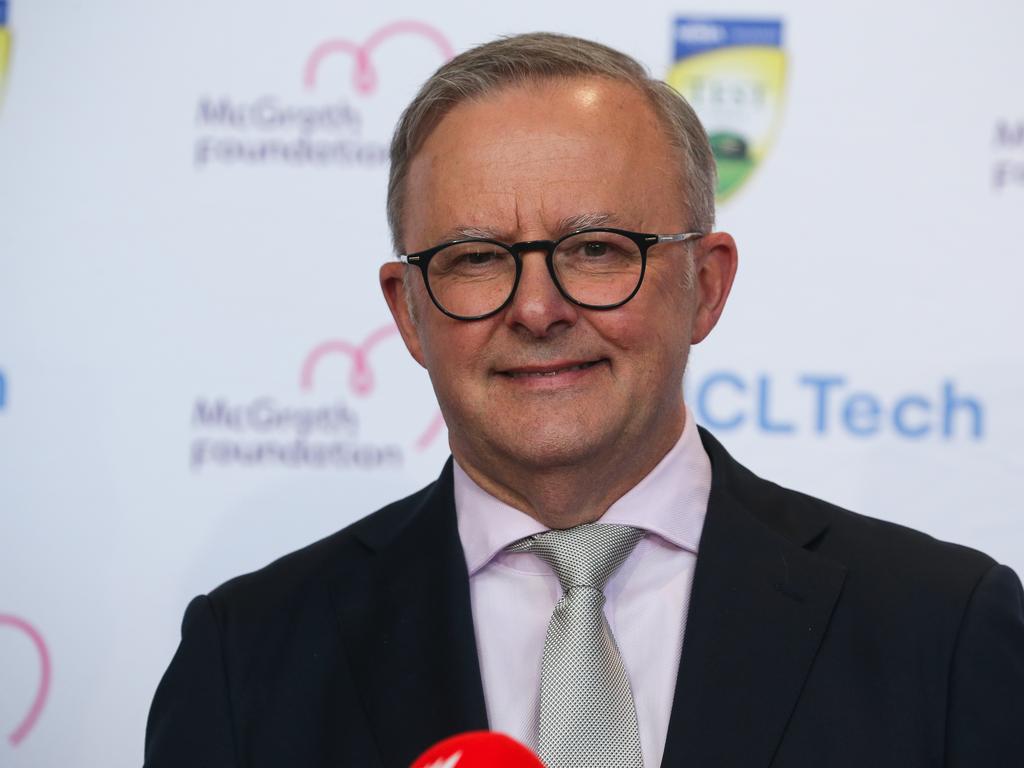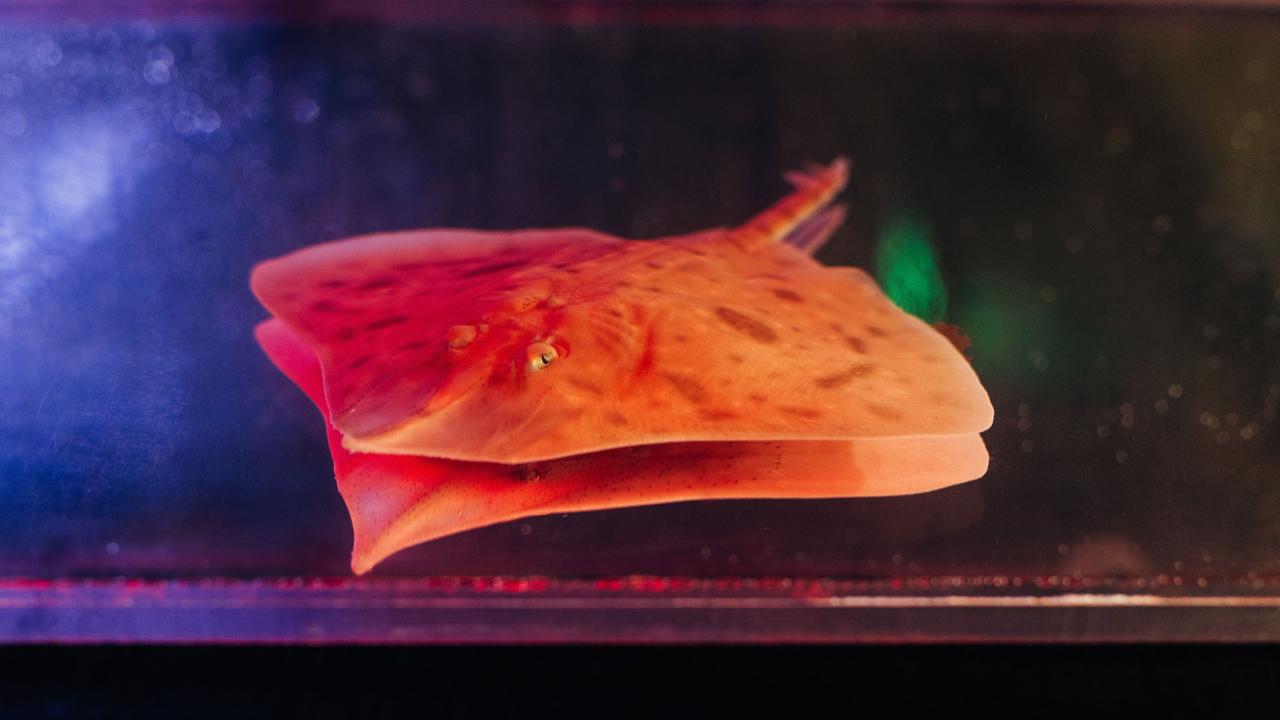New hope to remove brutal side effects of breast cancer treatment
By favouring androgen receptor stimulants over oestrogen blockers, a new study hopes to improve the quality of life for breast cancer patients.
A new breast cancer treatment at the centre of an international study could help patients avoid hormone deficits and improve their quality of life.
The study led by the University of Adelaide’s Stephen Birrell and Wayne Tilley tested the ability of the drug enobosarm to stimulate androgen receptors in the body, which can help combat hormone-dependent breast cancer.
Oestrogen receptor-positive breast cancer is the most common variety of the condition, making up 80 per cent of cases.
Dr Birrell and Professor Tilley had previously identified androgen receptors’ ability to suppress tumours, allowing them to circumvent the usual method of combating the cancer by reducing the body’s oestrogen levels.

Classic hormone treatments can have major side effects, which researchers hope the androgen receptor treatment can avoid.
“The effectiveness of enobosarm lies in its ability to activate the androgen receptors and trigger a natural defence mechanism in breast tissue, thereby slowing the growth of oestrogen receptor-positive breast cancer, which relies on the hormone oestrogen to grow and spread,“ Professor Tilley said.
The University of Adelaide carried out the study in conjunction with the Dana-Farber Cancer Institute in the US and the University of Liverpool in England. The study analysed the effect of enobosarm on 136 postmenopausal breast cancer patients, with results indicating a high tolerance from those with high efficacy against tumour growth.
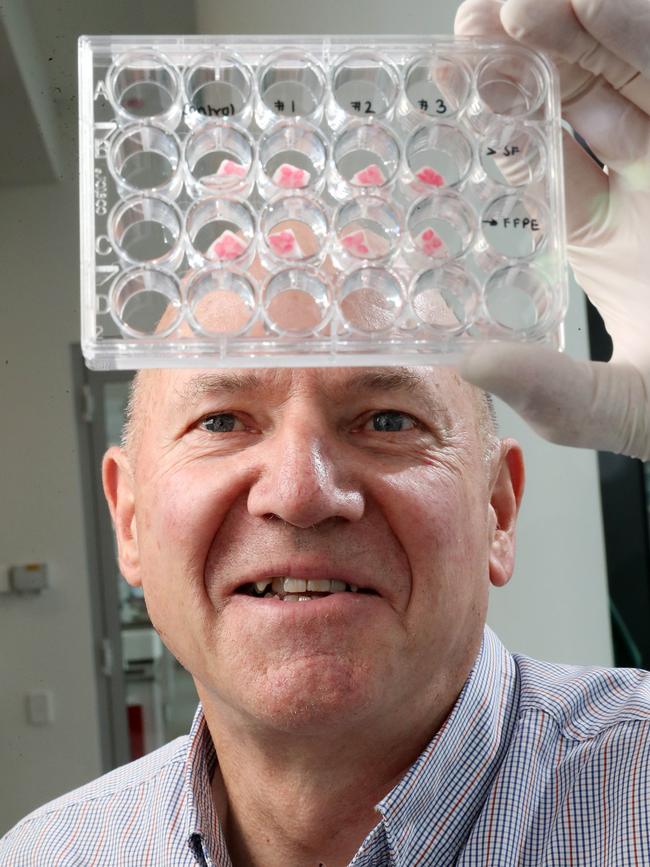
Mother of two Chloe Marshall of Prospect, South Australia, was diagnosed with breast cancer at 30, and received a double mastectomy alongside a full program of cancer treatment.
“I went on a drug called Zoladex to stop the production of oestrogen in the body,” she said. “It shuts down your ovaries and basically puts you into menopause, which comes with side effects.
“I had really bad insomnia, I wasn’t sleeping very well. I had aches and pains, hot flushes, mood swings, and just an overall feeling of being pretty, pretty below average.
“I just don’t want to feel like this for the rest of my life.”
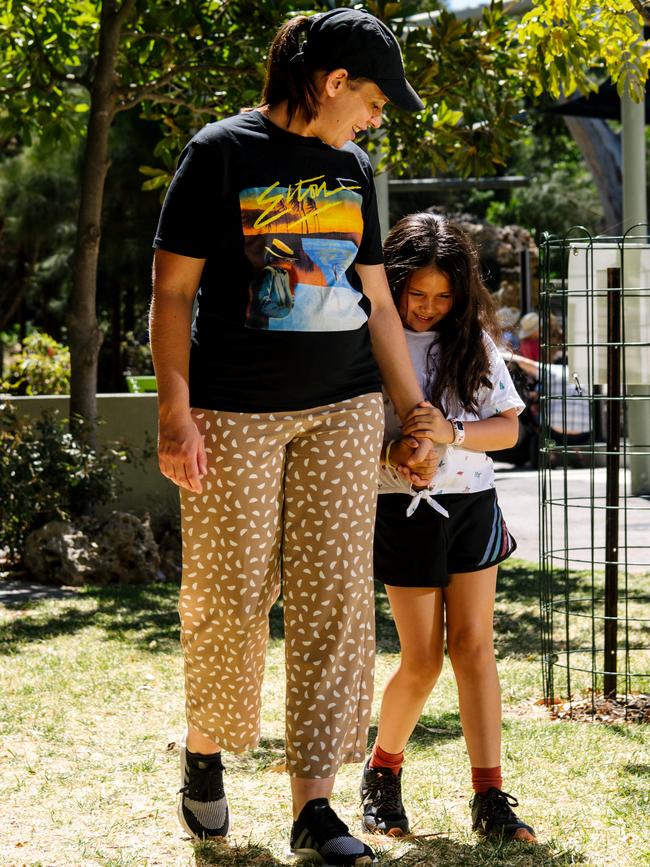
When she was 19 weeks pregnant with her second child, Annie, Ms Marshall found out her cancer had returned and she had to resume a gruelling slate of treatments and medication.
Ms Marshall, now 36, moved onto another oestrogen-blocker, anastrozole, during her second spate of breast cancer following Annie’s birth and a full ovariotomy.
“I didn’t feel like myself. I just wanted to be back to how I felt pre-cancer. But I know that was never going to be the case. I just want something that can at least make life more tolerable on the day-to-day,” she said.
“You almost have to forget about yourself and just concentrate on the kids.
“It’s not an obscure disease. We’ve got so many people being diagnosed with breast cancer every year … the diagnosis is bad enough as it is, but they’ve got their whole lives to lead.
“There needs to be better treatment on the market that can stop the cancer coming back, but also make your body feel better. I don’t feel like it needs to suppress the hormones into non-existence. Your body needs hormones.”
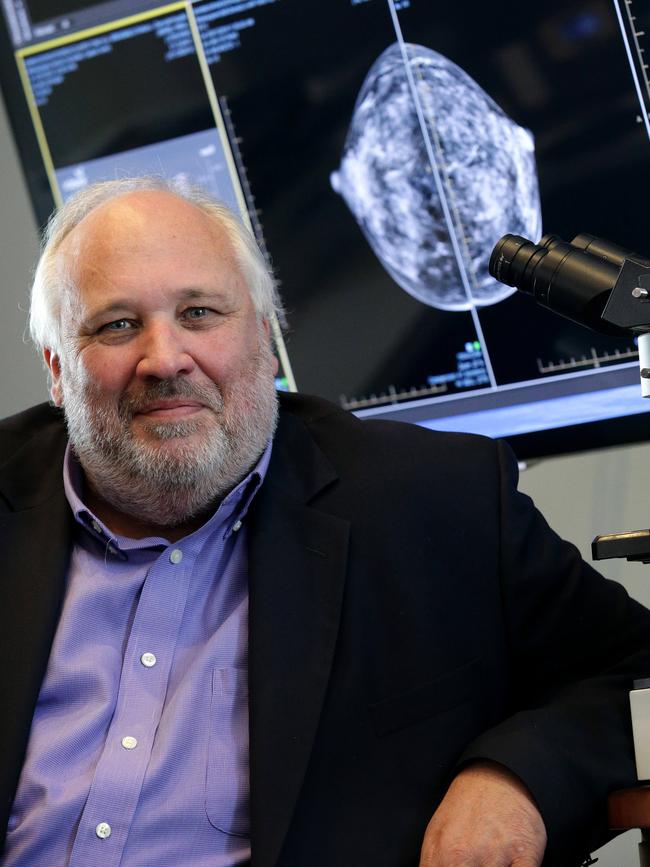
Fifty-seven Australians are diagnosed with breast cancer daily, with 2.3 million women diagnosed each year globally.
Oestrogen blockers had been the favoured medication treatment against breast cancer for decades prior to the study, which is set to be published in the Lancet Oncology journal.




